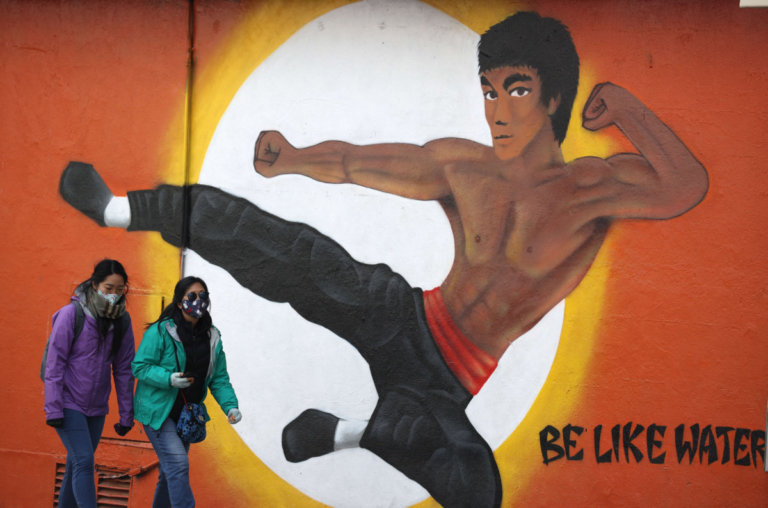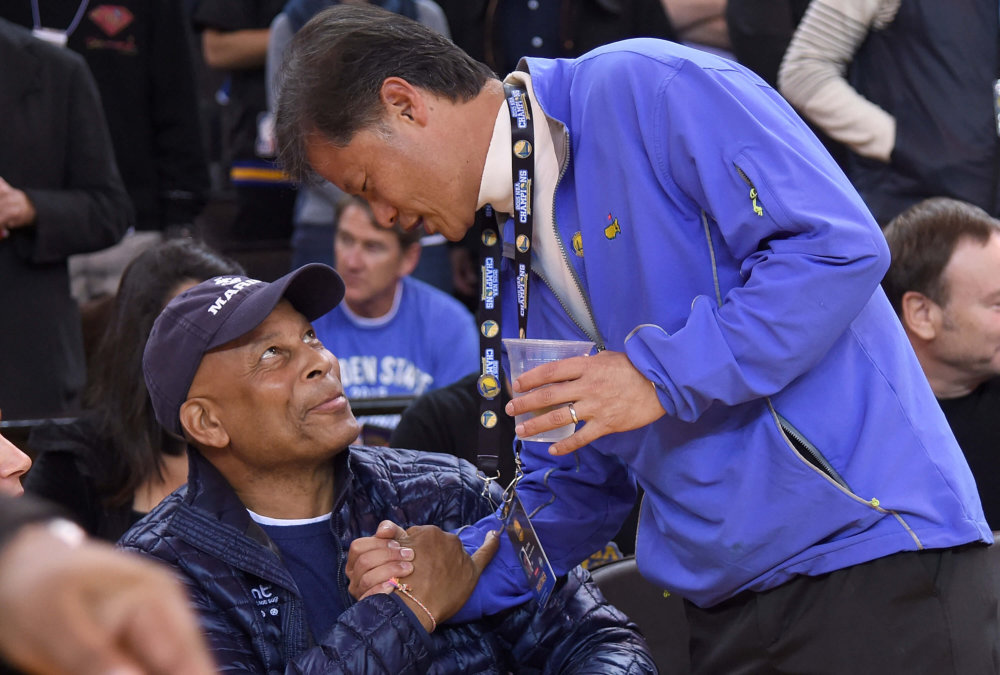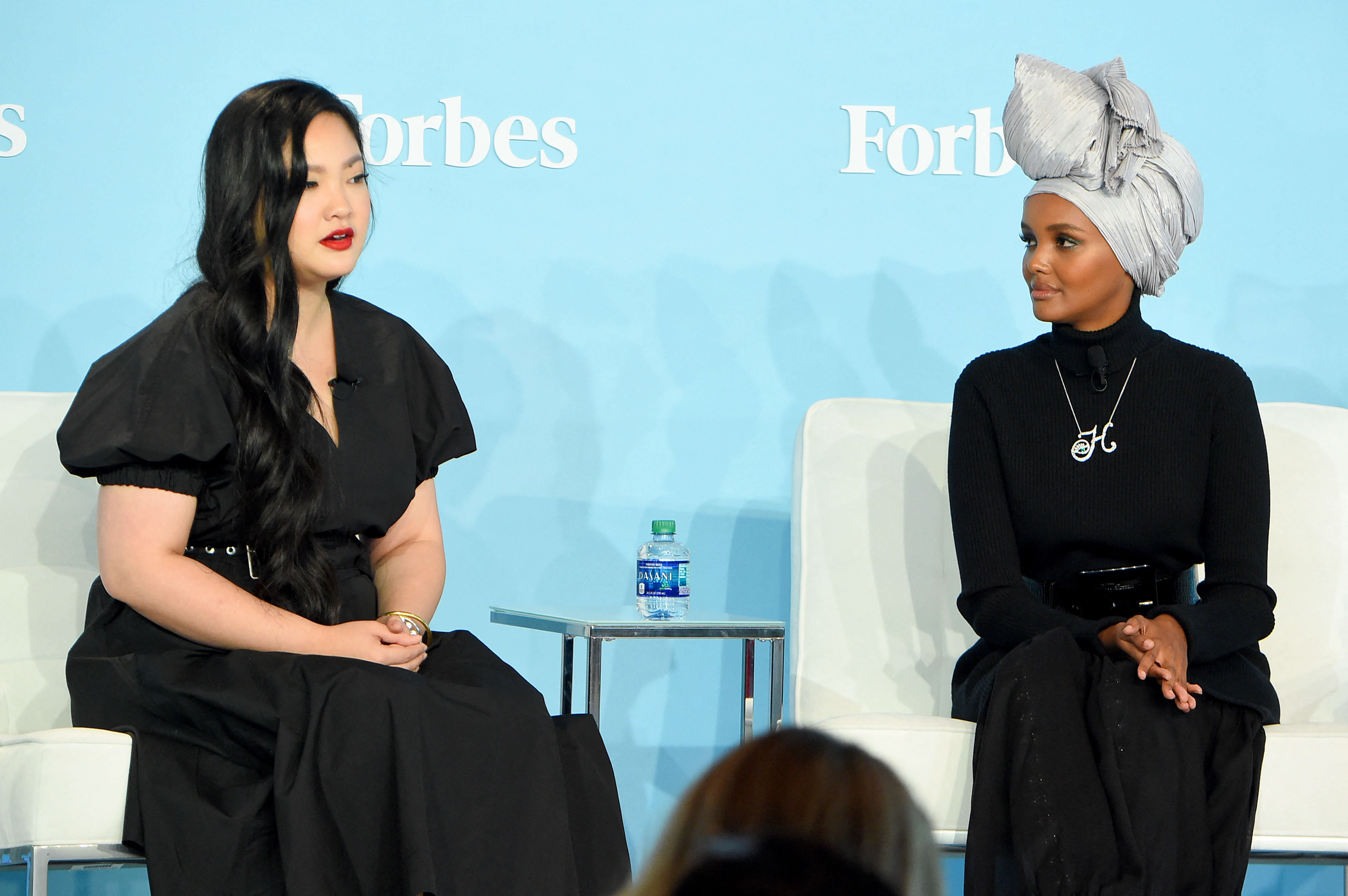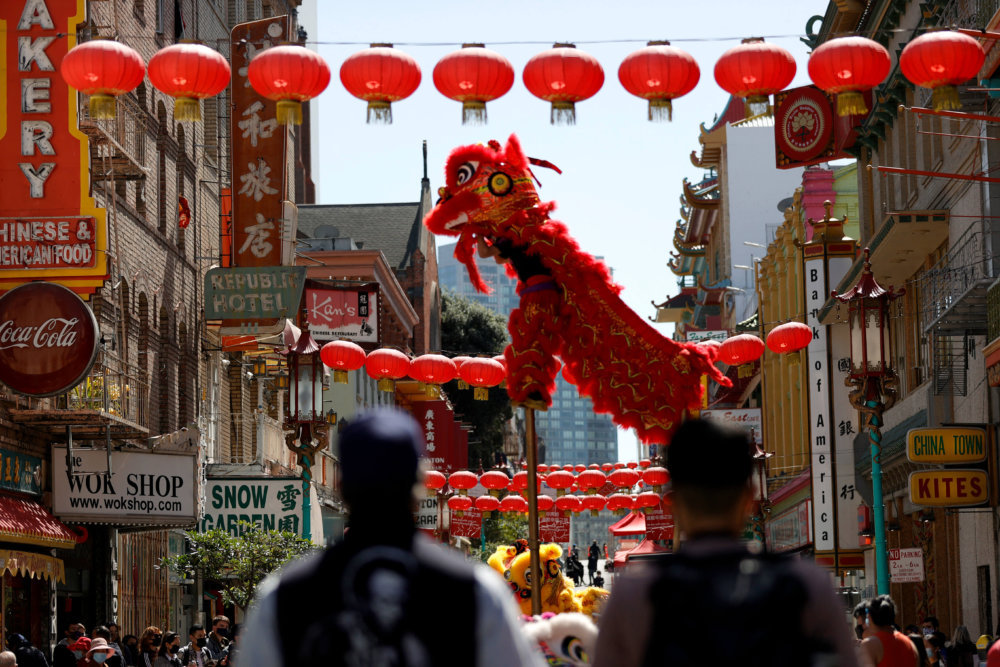
Did you know that Asian Americans have been in America since before the founding of the US? Chinese and Japanese immigrants helped build the railroads, going on to make their mark in various industries that grew from its connectivity. Today, Asians are one of the most significant minority groups in the US; yet, there were 3,800 recorded cases of hate incidents against them in the past year alone.
While racism cannot be cured overnight, making an effort to understand minority groups will go a long way to combat this social disease. What better place to begin than their positive contributions to society? Here are five ways Asian Americans changed the US — and the world — forever.

Co-founder of Yahoo, Jerry Yang (R) chats with former NFL star Ronnie Lott (L) prior to the start of an NBA basketball game. Source: Thearon W. Henderson/Getty Images/AFP
Enabling technological breakthrough
From web portals to e-mail services, several technological advances we enjoy today were pioneered by Asian Americans. Taiwanese American Jerry Yang co-founded Yahoo!, which expanded to include a search engine, e-mail, and news, while Indian American Sabeer Bhatia co-founded Windows Live Hotmail, which we now know as Microsoft Outlook.
Even YouTube was started by a group of two Asian immigrants and an American. Let’s not forget that the nifty USB — which evolved into the high-capacity storage devices we use today — was developed by Indian American computer architect Ajay Bhatt. Asian Americans continue to drive hardware and software forward today, using their expertise to positively influence the lives of millions.
Finding a cure for HIV-positive infants
In 2014, an HIV-positive child was functionally cured of the infection for the first time. This was a breakthrough in the field, led by Filipino American pediatric immunologist Dr. Katherine Luzuriaga and her colleague Dr. Deborah Persaud. Dr. Luzuriaga spent 30 years studying persistent viral infections in children; she developed one of the earliest diagnostic tests for HIV infection in children and conducted clinical research into antiretroviral therapies for them.

Amanda Nguyen (R) and Halima Aden speak during the 2019 Forbes Women’s Summit at Pier 60 on June 18, 2019 in New York City. Source: Jamie McCarthy/Getty Images/AFP
Advocating for human and civil rights
Before 2016, sexual assault survivors had to pay out-of-pocket for forensic medical examinations. Change only came when rape survivor Vietnamese American Amanda Nguyen encountered several roadblocks when seeking justice. She started a nonprofit organisation for survivors and wrote the Sexual Assault Survivors’ Rights Act, which grants survivors access to free forensic exams. She was nominated for a Nobel Peace Prize in 2018 but suffice to say, the impact of her efforts extends far beyond award recognition.
Asian Americans have also led the charge for civil rights in the US. Take the legendary Japanese American Yuri Kochiyama, who was greatly involved in the Asian and Black movement. Her work with fellow activists (including husband Bill and friend Malcolm X) led to the signing of the Civil Liberties Act in 1998.
Diversifying cuisine and culture
Chinese restaurants in the US date all the way back to the late 19th century when Cantonese restaurants began popping up in New York. This cuisine became incredibly popular over the years, evolving into American Chinese favourites like Panda Express, as well as contemporary versions such as Momofuku and Kogi. Now, you can find almost any Asian American cuisine in the US — or at least some fusion more suited to the Western palate.
Another major Asian import is martial arts, which led to the birth of mixed martial arts in the US. We can thank Hong Kong actor and martial artist Bruce Lee for bringing his combination of kung fu, boxing, and fencing techniques to Hollywood. They form Jeet Kune Do, which became popular among celebrities and stuntmen including Steve McQueen, Kareem Abdul-Jabbar and Chuck Norris.

A Chinese dragon dance team performs on Grant Avenue in Chinatown on March 20, 2021 in San Francisco, California. Hundreds of people attended a vigil and healing gathering in San Francisco’s Chinatown in the wake of a recent surge in hate crimes that are targeting Asians. Source: Justin Sullivan/Getty Images/AFP
Discovering atomic science
You may be familiar with the Manhattan Project, but do you know the Chinese-born scientists behind it? We’re talking about Dr. Chien-Shiung Wu, who improved the technology used to detect radiation and enrich large quantities of uranium. Though she was one of the earliest representatives of women in STEM in that field, her contributions were initially overlooked in favour of male counterparts. Nevertheless, her work on beta decay paved the way for more women scientists to rise in the US.










